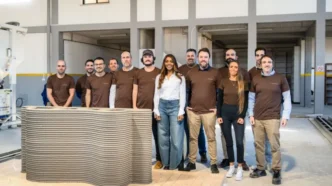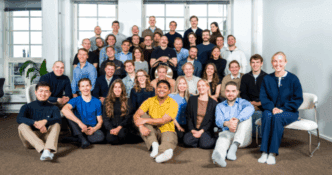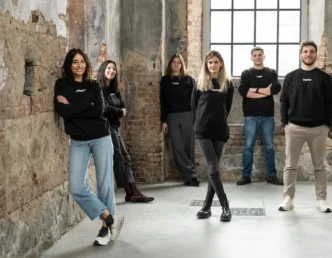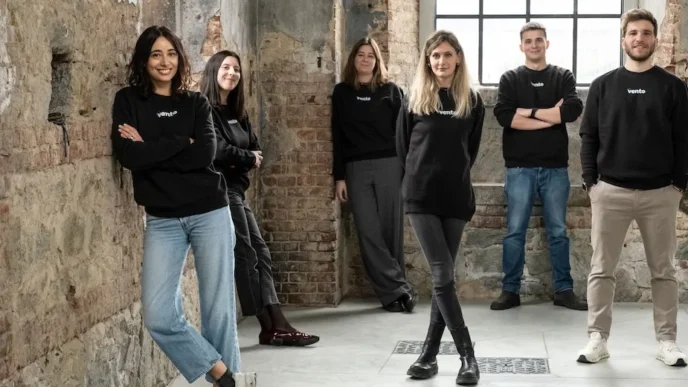What began as a simple dream for Thibault and Simi Launay—building their ideal home in Portugal—turned into a multi-year struggle. Fourteen months of delays, budget overruns, and juggling more than 10 subcontractors left them exhausted. They started building in early 2022 with hopes of moving in by February 2024. It’s now May 2025, and the house still isn’t done.
That painful journey inspired them to launch Litehaus, a startup on a mission to fix the broken home-building experience. If they, as seasoned entrepreneurs, were facing this chaos, they realized millions of others must be too.
A New Model for Smarter, Faster Home-Building
Founded early last year, Litehaus aims to simplify the way homes are built. The startup connects landowners and developers with architects, contractors, interior designers, and builders—all in one place. It offers a real-time dashboard to track construction progress, coordinate with teams, and manage costs. Thibault calls it the “Uber of construction.”
Instead of tackling the industry head-on, Litehaus chose a focused strategy: modular construction. This method allows them to deliver homes 30% cheaper, 40% faster, and with 60% less environmental impact. That also means 90% less waste and 50% lower CO₂ emissions compared to traditional builds.
Other players in the modular space include U.S.-based Ginosko Modular and India’s Schnelle Prefabs. But Litehaus is targeting a specific gap in the European market—where housing shortages and outdated building systems create a huge opportunity for innovation.
Backed by VCs to Build Europe’s Construction Tech Future
The vision is catching investor attention. Litehaus just closed a €1.46 million pre-seed round led by Cornerstone VC in the UK. Portugal’s Explorer Fund, Luxembourg’s Claster Group, and U.S.-based angel investor Pascal Levy also participated.
Rodney Appiah, Managing Partner at Cornerstone VC, said the duo’s pitch stood out. Their goal? Make building a home as seamless as buying one. That message resonated strongly amid Europe’s worsening housing crisis.
Thibault and Simi bring strong backgrounds to the business. Thibault, originally from France, has built a gaming studio in Portugal and invested through firms like 50 Partners and Origins. Simi, born in Nigeria and raised in London, has led a wellness brand, curated a contemporary art gallery, and advised firms on African markets.
At Litehaus, Simi leads design, brand, and communications, while Thibault handles product, tech, and fundraising. With the new funds, they plan to hire across engineering, marketing, and operations to scale faster across Europe—and eventually in the U.S.
Ironically, they raised capital, built a startup, and had two kids before completing their own home. But next month, they’ll finally move in. Thibault says that’s the pain point Litehaus was built to solve: making the path from dream to doorstep easier for everyone.
What began as a simple dream for Thibault and Simi Launay—building their ideal home in Portugal—turned into a multi-year struggle. Fourteen months of delays, budget overruns, and juggling more than 10 subcontractors left them exhausted. They started building in early 2022 with hopes of moving in by February 2024. It’s now May 2025, and the house still isn’t done.
That painful journey inspired them to launch Litehaus, a startup on a mission to fix the broken home-building experience. If they, as seasoned entrepreneurs, were facing this chaos, they realized millions of others must be too.
A New Model for Smarter, Faster Home-Building
Founded early last year, Litehaus aims to simplify the way homes are built. The startup connects landowners and developers with architects, contractors, interior designers, and builders—all in one place. It offers a real-time dashboard to track construction progress, coordinate with teams, and manage costs. Thibault calls it the “Uber of construction.”
Instead of tackling the industry head-on, Litehaus chose a focused strategy: modular construction. This method allows them to deliver homes 30% cheaper, 40% faster, and with 60% less environmental impact. That also means 90% less waste and 50% lower CO₂ emissions compared to traditional builds.
Other players in the modular space include U.S.-based Ginosko Modular and India’s Schnelle Prefabs. But Litehaus is targeting a specific gap in the European market—where housing shortages and outdated building systems create a huge opportunity for innovation.
Backed by VCs to Build Europe’s Construction Tech Future
The vision is catching investor attention. Litehaus just closed a €1.46 million pre-seed round led by Cornerstone VC in the UK. Portugal’s Explorer Fund, Luxembourg’s Claster Group, and U.S.-based angel investor Pascal Levy also participated.
Rodney Appiah, Managing Partner at Cornerstone VC, said the duo’s pitch stood out. Their goal? Make building a home as seamless as buying one. That message resonated strongly amid Europe’s worsening housing crisis.
Thibault and Simi bring strong backgrounds to the business. Thibault, originally from France, has built a gaming studio in Portugal and invested through firms like 50 Partners and Origins. Simi, born in Nigeria and raised in London, has led a wellness brand, curated a contemporary art gallery, and advised firms on African markets.
At Litehaus, Simi leads design, brand, and communications, while Thibault handles product, tech, and fundraising. With the new funds, they plan to hire across engineering, marketing, and operations to scale faster across Europe—and eventually in the U.S.
Ironically, they raised capital, built a startup, and had two kids before completing their own home. But next month, they’ll finally move in. Thibault says that’s the pain point Litehaus was built to solve: making the path from dream to doorstep easier for everyone.













